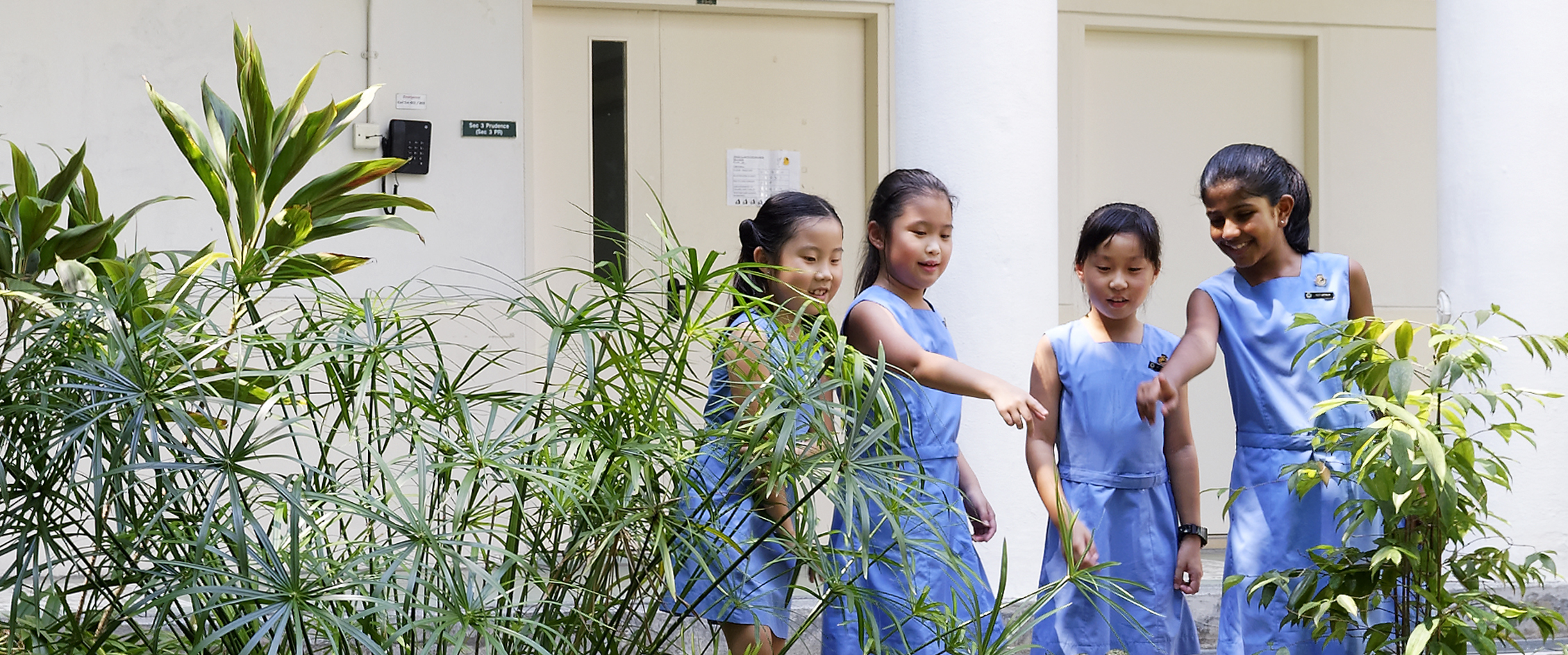Character and Citizenship Education
Character and Citizenship Education

Philosophy:
Character and Citizenship Education (CCE) is integral to the holistic development of our students, leading to positive life outcomes. It provides an integral approach to addressing our students’ development of values, character, social-emotional well-being and citizenship dispositions in a coherent and holistic way. The goals of the CCE syllabus aim to develop our students: Good character, Resilience and social- emotional well-being, Future readiness and Active citizenship.
Programmes:
Our key programmes include CCE (FTGP), CCE (MTL) lessons, Key Student Development Experiences and School-based initiatives.
These lessons include CCE Form Teacher Guidance Period (FTGP), CCE Mother Tongue Languages (MTL), Lifeskills and Programme for Active Learning (PAL) provide the time for teachers to engage and build relationships with their students through discussions and effective classroom strategies. Some key features of the CCE(MTL) and CCE(FTGP) lessons include Family Education, Mental Health and Sexuality Education.
Key Student Development Experiences (SDEs) include Co-curricular Activities (CCA), Cohort Learning Journeys (LJs), Education and Career Guidance (ECG) Experiences, National Education (NE) Commemorative Days, Outdoor Adventure Learning (OAL) Cohort camps, Student Leadership Development (SLD) Programmes and Values in Action (VIA), including everyday responsibilities. These meaningful experiences enrich our students’ learning in school.
Using the tiered system of support, we plan school-based programmes that cater to the needs, interest and abilities for our students. In SCGS, CCE complements other learning platforms and subjects in the development of our students. For CCE to be meaningful, students will be taught to reflect on their character growth as a lifelong process.
We provide a caring and enabling school environment focussing on positive Teacher-Student Relationships and supportive Peer Support culture. We create opportunities for them to develop
leadership competencies, as well as a sense of belonging to their school community and the motivation to make a positive difference.

